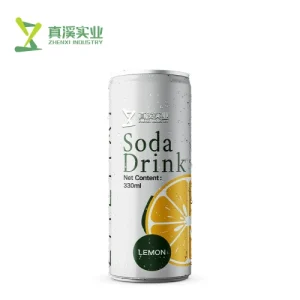Good Relationship with your Beverage Supplier: It is a critical element in maintaining the supply chain, product quality and mutual business growth. Trust involves constant and clear two-way communication, respect for both parties of the relationship as well strategic partnering
Lack of communication: Communication is the base for maintaining a strong relationship with suppliers. Frequent meetings and updates allow both parties to be on the same page about expectations, production schedules, concerns. In fact, a 2020 Harvard Business Review survey found that just establishing strong supplier communication processes led to a +23% better efficiency in supply chain operations. ERP (Enterprise Resource Planning) systems can improve communications with everyone involved in a change and provide real-time updates as well for transparency.
There has to be mutual respect and understanding. A partnership approach to dealing with suppliers vs. just a vendor helps create collaborations That includes keeping your word, paying on time and working in a way that works with their business process. The famous business man Richard Branson once said, "Respect is how to treat everyone, not just those you want to impress. Showing respect fosters trust and loyalty - in turn driving a supplier to take care of your business.
Joint growth initiatives can be a win-win situation for all. This may mean collaborating on product co-development, or providing market intel that can inform how the supplier develops their offerings. In another example, Pepsi is working with its suppliers about sustainability programs resulting in a 20% reduction of their aggregate environmental footprints. These collaborations are key to fostering innovation and strengthening market position.

Supplier performanceMonitoring and improving supplier performanceReducing procurement costs through effective price negotiationAchieving high quality materialsManagers can effectively monitor the suppliers. For instance, delivery time, product quality, and order accuracy are some of the measurable key performance indicators (KPIs). Deloitte found that companies who implemented KPIs for supplier management, 70% reported having better supply performance and reliability.
Fair and flexible contract terms are important to negotiate Contracts should clearly define payment schedules, delivery timelines and quality specifications. Being understanding of the contract is a two-way street and you can expect wonders if it works in favor to give consideration to minor adjustments when market falls or due worst-case scenarios. For instance, those businesses that flexed their contracts during the COVID-19 pandemic to help suppliers survive upheavals repot stronger ties once life in a post-pandemic world resumed.
Track, Review and RateYour ongoing reviews/ratings are your tool for continuous improvement from the supplier. Supporting feedback in places it is needed, plus active positive reinforcement when deserved from the suppliers keeps them motivated and on your page. This echoes a 2019 study from McKinsey, which showed that suppliers overwhelmingly (65%) see regular feedback as key to their relationship with buyers.
Solving the problems together only makes up stronger after it. Problem solving as a team - not finger pointing when problems do arise. A collaborative working manner like this can help in faster resolution and also showcase the desire to make a success of the partnership.
Social interactions, and personal relationships as well. For example, attending an industry event or happening to sit next a supplier at family ball game may uncover new elements of business with your vendor. As investment sage Warren Buffett famously said, "You don't do deals; you build relationships." This will also help in instilling trust and can ease our negotiations.
Using technology to simplify and automate their operations will also reinforce this relationship. Supply chain management software make order processing, tracking and communication easy. Such systems help reduce error and increase operational efficiency for both the employer as well as employees.
Lastly, recognizing wins and celebrating them collectively reinforces the partnership. Hitting a major milestone, launching some new product or getting through a rough patch; celebrating shared accomplishments is good for morale and the relationship.
The foundation of trust and effective communication is once established, Beverage Supplier Development (BSD) becomes a relationship which combines these two crucial aspects along with Respect for each other as suppliers or customers. This relationship can be monetized by businesses in terms of a reliable supply chain, persistent quality of product and sustainability.